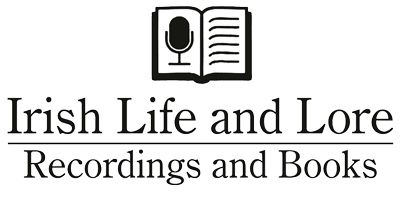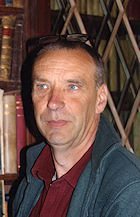Track 1: Adrian Cosby discusses the history of Stradbally and the family estate at Stradbally Hall. He explains that at the time of WWI his grandfather, Dudley Sydney Ashworth Cosby, was in his fifties and his own uncles, Eric and Ivan, were children. His father, Ashworth, though then with the 2nd Rifle Brigade, was too young to be long at war and he fortunately survived the battles in which he participated. After WWI, Ashworth studied Russian, a language which he used in the WWII. Adrian discusses his father’s experiences in the war, which he described to him. The Spanish flu epidemic towards the end of the war, which particularly affected young adults, is recalled. Ashworth Cosby remained in the army after the war and went out to the Middle East and to Turkey. His son describes the situation in Greece and Turkey in the 1920s. His father also served in India for a while and in 1932 he resigned from the army and returned to Stradbally Hall at a time when it had been empty for almost a decade though Adrian explains that the work of the estate had continued over this period. The dower house had been burned by some Irish who had returned from America, and this upset his great-grandfather Robert very much. Adrian recalls a council called by Lloyd George in 1920, which met in Portlaoise, on the subject of whether to treat with the nationalists. Two men did not sign as they did not agree that they should make peace with the rebels. His great-grandfather did sign, hoping to save the house, but he shot himself the next day. Adrian considers that his great-grandfather had wanted Home Rule but did not believe that Sinn Féin should run the country. The connection with Kevin O’Higgins and his family is also discussed. Track 2: Adrian talks about the market house in Stradbally, its history and conservation. Track 3: The service men who returned from the war are remembered and Adrian recalls them in their old age. He discusses the lack of British or Irish aid to returning soldiers, compared to the situation in France and Germany. The Armstrong family from Strangford are recalled and he mentions some local men who served in various wars. His father Ashworth was called up from the reserve in 1938, and he trained in England. He was then moved to Northern Ireland where he worked with the motorised infantry. Adrian remembers seeing some German aeroplanes overhead and tells some anecdotes of his interactions with the Army as a small boy. In 1942, Ashworth was called on to go to Persia to protect Bandar’e Shahpur port there and he did not return on leave until 1944. Adrian’s mother, Enid Hamilton, was left with two small children and the servants at Stradbally, and Adrian remembers life in Ireland during the Emergency. His father was demobbed in 1945. Track 4: Adrian describes his father’s position of taking care of refugees in Europe, including collaborators and those who had been imprisoned in concentration camps. He considers that the handling of the end of WWII was was superior to that of WWI. He also talks about the Duke of Wellington’s attitude toward the French, which had been influenced by his early training in that country. The difficulties encountered by his mother in keeping the house going and in dealing with the banks are recalled, and he discusses Brockley Park, built by the Earl of Roden, which was taken by a bank, became derelict and was eventually sold for the lead in the roof. Track 5: The campaign to dismantle estates is considered as is the effect of the work of the Land Commission. Adrian makes the point that many of the tenants were descended from Cromwellian soldiers and Welsh planters and he considers that the lack of attractions, such as historic houses, makes the promotion of tourism in County Laois difficult today. In his opinion, luck played a large part in the saving of Stradbally Hall in the 1920s. He talks about the lack of understanding in his family about commercial farming before his time, and the expensive and time-consuming nature of labour intensive farming at Stradbally right up to 1960. He recalls his father’s difficulty in running a farm efficiently and he explains that his mother then set up a school in the house for the daughters of friends. An American woman, Anne O’Neill-Barna, wrote about this in a book, ‘Himself and I’. For a few months, Adrian kept a diary which describes some of the incidents at the school, and he recounts an amusing anecdote about a trip to the local cinema. He describes the difficulties of earning enough to pay the rates and the bank interest. He attended school in England and did National Service with the Irish Guards following his training at Sandhurst. However, because he used his uncle’s address, he was called up and served in the Royal Navy for a period. He speaks about his mother, Enid Hamilton, who was born in 1915, and her family home in Roundwood which was raided by the IRA in 1921 in a search for arms.

Adrian Cosby (b. 1937) (Part 1)
Adrian Cosby (b. 1937) (Part 1)
€10.00 – €20.00
Additional information
| Type: | MP3 |
|---|---|
| Audio series: | The Irish Country House and the Great War |
| Bitrate: | 128 kbps |
| Download time limit: | 48 hours |
| File size(s): | 13.19 MB, 10.10 MB, 11.42 MB, 7.62 MB, 8.73 MB, 9.14 MB, 11.39 MB |
| Number of files: | 3 |
| Product ID: | CHGW01-33 |
| Subject: | The Cosby family in war and peacetime |
| Recorded by: | Maurice O'Keeffe – Irish Life and Lore |







